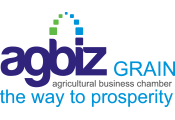
Articles & Insights
Agbiz Grain SHEQ seminar exceeds expectations

The Agbiz Grain SHEQ, or safety, health, environment and quality, seminar held in Pretoria last year brought together industry leaders to discuss critical issues pertaining to the grain storage sector. The key topics included the Agbiz Grain SHEQ compliance audit, alcohol and substance abuse in the workplace (especially cannabis use), workplace injuries and challenges such as medical practitioners refusing to treat injury-on-duty (IOD) cases, employees faking IODs, and navigating compensation under the Compensation for Occupational Injuries and Diseases Act, 1993 (Act 130 of 1993) or COIDA.
The SHEQ compliance audit
The first session addressed the need for audit criteria tailored to the grain storage sector. Due to the industry being unique with distinct risks and mitigation methods, a sector-specific audit document needs to be created. This document, developed by a sector committee with external input, will cover all compliance aspects for grain storage facilities.
Jaco Joubert, SHEQ specialist at Overberg Agri, said the grain industry has a need for such audit criteria as industry stakeholders face common challenges related to insurance and legal obligations. Joubert was part of a panel that included Philip du Preez, managing director of VKB Brokers, Japie Greyling, senior safety supervisor at AFGRI, and Roger Fredericks, regional survey manager at Santam. The panel stressed the importance of standardising practices to support the industry’s collective growth.
According to Joubert, the aim is to create a joint, industry-specific audit protocol that accommodates the variety of infrastructure and grain storage types. Risk management – including safety, health, quality, and environmental
impact – is critical for business survival. Proper risk management helps maintain a company’s insurability and protects its risk profile from deterioration. Joubert said that legislation must be followed. “The challenge now is to determine where we start. We must evaluate our facilities, whether old or new. From there, we will establish the audit protocol by extracting the relevant elements.”
He stressed that risk management is vital for business survival, with safety, health, quality, and environmental impact being key components of this. While the working environment of the grain industry is unique, risk management principles remain the same and must be followed to ensure the survival of a company. Insurance plays a crucial role in making businesses insurable, and a company’s risk profile must be closely evaluated. Failure to manage risks can lead to a deteriorating risk profile, which could impact insurability and compliance with legislation.
Facing challenges
Joubert acknowledged the enthusiasm for the audit, but warned that significant work remains before the process can
be fully implemented. “We are a diverse group within the grain industry, and we need to agree on what the audit will include, how it will be structured, and what protocols it will follow.” He estimated it would take several months to finalise the audit process.The advantage of the final product is that it will not be rigid, but will evolve as the industry learns from the process. “We will start with a basic framework, then adapt it as we grow.”
All companies involved are encouraged to participate, and a forum will be created to ensure collective input and to move the project forward.
Click here to read full article by Christal-Lize Muller, Plaas Media
